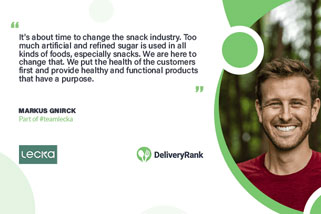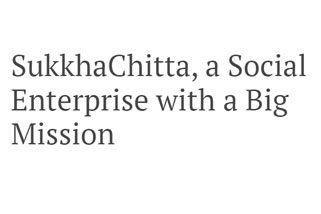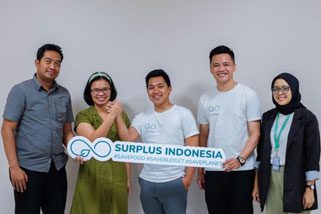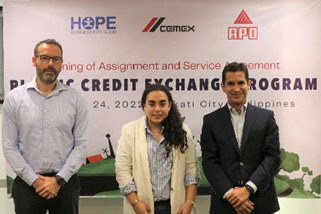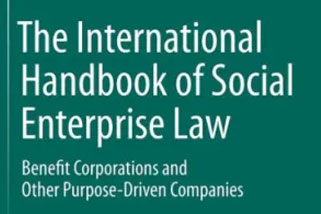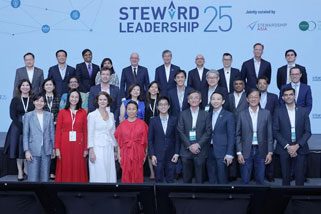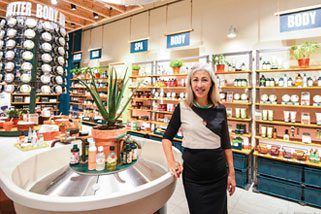Markus Gnirck, Founder & CEO of Lecka, chats to DeliveryRank about this budding start-up that is taking the snack industry by storm. Proudly Vietnamese in all its glory, Markus gives us a glimpse into the world of Lecka. What inspired the creation of Lecka and how long have your products been on the market? The economies in Asia, especially in Southeast Asia and Indonesia are growing very fast. My industry is now Sports & Wellness and Fitness but prior to moving to Vietnam, I was based in Singapore and was a tech investor in various countries here in Asia. I had been observing the whole trend and growth of the Asian middle class and was curious to step out of the Singaporean ecosystem and try something new – something that would target the emerging middle class and would be, of preference, a consumer product. Everybody was going online a couple of years ago, yet I decided to go the other way – offline. I am a passionate runner, love being outside and trail running is my absolute passion. From a nutritional point of view it was quite obvious that nothing in Vietnam was available for athletes like myself or for sports in general. During Covid, I came up with recipes using ingredients only available on the local markets – mango, bananas, pineapple, cashew nuts, coconut flakes etc… We played around and mixed them together to form our energy and sports bars that are now available on the market. In a nutshell, Lecka was launched in 2021 out of a combination of rational thinking and personal interest in the area of nutrition and sports. When I arrived here 4 years ago there were only two marathons a year, and now there is one pretty much every weekend. As an entrepreneur, one’s options are endless but the key to success is focus. Focus on one particular project instead of pursuing the endless business ideas that pop into one’s mind. This is how the idea of our energy bars materialized – as one of the ten ideas I had swimming around in my head – sports and energy bars seemed the most feasible. Since last year, in addition to supplying the Vietnamese market, we have been exporting to Singapore, Hong Kong, the Philippines, and in a few weeks time we will be exporting to Europe. We really focus on our story ‘farm to snack’ and the freshness of our products speaks for itself. What challenges were (are) you faced with, if any? The biggest challenge is and always has been packaging. My background is plastic material science and as a nature loving trail runner, seeing food packaging lying around in nature is devastating. This happens only too often in Southeast Asia. It was a major challenge to avoid using single use plastic which can’t even be recycled. When we started out we used banana leaves as our packaging for all our prototypes and then for a year and a half we tested bio-based home compostable packaging with which we launched our products. Managing how to use this in the packaging machines, managing the shelf-life and supply chain was extremely challenging as the food retail industry really only caters for single-use plastic. The second part of the challenge was finding and educating good farmers in Vietnam that understand our mission – that we don’t want chemicals or pesticides in our ingredients. What would you describe your mission to be? To be the leading healthy food brand in Southeast Asia which is what we call ‘home’. The market consists of 650 million people, the middle class is expanding rapidly, education and travel are booming and building a healthy food brand in Vietnam places us smack bang in the middle of all of this – very exciting times ahead. We are also a certified B Corporation (social enterprise certification) and we believe in giving back to communities, whether it is to the sport community or by supporting charities in Vietnam. My goal is to nurture another generation of talent that can become great entrepreneurs themselves. How do you see the future of the snack industry and does this differ, in your opinion, depending on where one is in the world? We sell to both Western and Asian markets and what we have noticed is that flavors are turning more local and are moving away from Western flavors (such as sweet chocolate). We are seeing an emergence of more savory, spicy and bitter flavors such as matcha, mushrooms and teas etc… Less sugar and sweetness is also becoming more prominent. We never use refined sugar but we do use nectar. In Southeast Asia people are also becoming more aware of what is healthy, calorie intake, micro and macro nutrition and this is partly due to Covid. Asia is catching up very fast. Where to from here? We are very excited about Asia and are looking to introduce more products for kids and other segments that we do not yet cater for. For example, the mum and kids segment I feel is underserved and has incredible potential. Packaging materials are my passion and testing more materials to reduce food waste and increase shelf-life is definitely on my agenda. Watch the space! If you would like to find out more about Lecka visit https://leckafoods.vn/ or follow on https://www.facebook.com/lecka.eco Sarah Kirton A wannabe global ‘food-trotter,’ Sarah nurtures a deep-seated passion for food and cultural diversity and believes the two go hand in hand. Having lived in Europe for many years she has a great knowledge of Mediterranean and French cuisine. She now lives in Cape Town, the food capital of Africa. When she is not dining out or cooking up a storm you will find her kite-surfing on the ocean, up a mountain, or cuddling her cat Samson!
Travel companies are ‘greenwashing’ — here are 3 ways to find ones that aren’t
Monica Pitrelli @MONICAPITRELLI People said the pandemic made them want to travel more responsibly in the future. Now new data indicates they’re actually doing it. According to a report published in January by the World Travel & Tourism Council and Trip.com Group: Nearly 60% of travelers have chosen more sustainable travel options in the last couple of years. Nearly 70% are actively seeking sustainable travel options. But finding companies that are serious about sustainability isn’t easy, said James Thornton, CEO of tour company Intrepid Travel. “You see hotels saying they’re sustainable, and then you’re using these little travel bottles for shampoos and shower gels,” he said. It’s all just “greenwashing,” he said, referencing the term that describes companies’ efforts to appear more environmentally sound than they are. For a Company to say they’re “100% sustainable” or they’re “eco-conscious” … doesn’t mean anything. — James Thornton CEO, INTERPID TRAVEL The term has risen in popularity alongside the increase in demand for sustainable products and services. The result is a mix of those who are truly dedicated to the cause — and those who sprinkle eco-buzzwords and photographs of seedlings, forests and other “green” imagery in their marketing materials, with no real action to back up their claims. Finding companies that are sustainable Be wary of these tactics, said Thornton. “For a company to say they’re ’100% sustainable’ or they’re ‘eco-conscious’ … doesn’t mean anything,” he said. “I would urge travelers to be very cautious when they’re seeing these words, and to really dig in and look in a bit more detail.” https://www.youtube.com/embed/4f2me4GYkF0 Consumer interest in sustainable travel has changed considerably in the past two decades, said Thornton. He said when he joined Intrepid travel 18 years ago, “people would look at us like we’re a bit crazy” when the company talked about sustainability. Now, many companies are doing it, whether they are serious, or not. Thornton said he believes the travel industry is currently divided into three categories. One third have “incredibly good intentions, and [are] working very actively on addressing the climate crisis … and they’re making good progress.” Another third have “good intentions but [aren’t] actually taking action yet. And often … they’re not quite sure how to take action.” The final third “is just utterly burying its head in the sand and hoping that this thing is going to go away, and the truth of the matter is — it isn’t.” To identify companies in the first category, Thornton recommends travelers look for three critical things. 1. A history of sustainability To ascertain whether a company may be jumping on the eco-bandwagon, examine its history, said Thornton. He advises looking for “a long history of association with issues of sustainability, or is this something that only just appeared?” Intrepid Travel CEO James Thornton. Source: Intrepid Travel 2. Check for measurements Next, travelers should see if the company measures its greenhouse gas emissions, said Thornton. “The honest truth is that every travel company is ultimately contributing towards the climate crisis,” he said. “So the best thing any travel company can start to do is measure the greenhouse gas emissions it creates.” To do this, Thornton advised travelers to check the Glasgow Declaration on Climate Action in Tourism. “The Glasgow Declaration website lists the organizations that have agreed to actively reduce their emissions … and actually have a climate plan that shows how they’re doing that,” he said. Signatories must publish their climate plan, which is monitored by the United Nations World Tourism Organization, he said. “Consumers can use this as a way to check if the company they’re booking with is serious about decarbonization,” he said, adding that more than 700 organizations are on the list. Thornton said travelers can also check the Science Based Targets Initiative, which is a partnership between CDP, the United Nations Global Compact, World Resources Institute and the World Wide Fund for Nature. Its website has a dashboard that details emission-reducing commitments made by more than 4,500 companies worldwide, including American Express Global Business Travel, the United Kingdom’s Reed & Mackay Travel and Australia’s Flight Centre Travel Group. 3. Look for certifications Finally, travelers can check for independent assessments, said Thornton. One of the most rigorous and impressive is the B Corp Certification, he said. “It took Intrepid three years to become a B Corp,” he said. Other companies with B Corp status include Seventh Generation, Ben & Jerry’s, Aesop — and Patagonia, which Thornton called “arguably the most famous B Corp in the world.” To get it, companies are reviewed by the non-profit B Lab and a certification lasts for three years, said Thornton. Kristen Graff, director of sales and marketing at Indonesia’s Bawah Reserve resort, agreed that B Corp is the “most widely respected” certification. Graff also recommends the Global Sustainable Tourism Council, saying that it and B Corp are “actually … legit.” The GSTC does not certify travel companies, but rather accredits third party certification bodies that use its standards. Bawah Reserve, a resort in Indonesia’s Anambas Islands, is applying for B Corp certification. The resort uses solar power and desalinates drinking water on the island. Source: Bawah Reserve Other travel eco-certifications are less exacting, said Graff. “Many of them are just a racket to make money,” she said. Bawah Reserve started the process to become B Corp certified in November of 2022, said Graff. “We anticipate it will take about a year to complete,” she said. B Corp uses a sliding scale for its certifications fees, which start at $1,000 for companies with less than $1 million in annual revenue. “The cost is fairly minimal,” said Thornton, especially “if you’re serious about sustainability.” He said Intrepid pays about $25,000 a year for the certification. Other advice Thornton also advised travelers to ask questions like: Are you using renewable energy sources? Is the food locally sourced? Are employees from local communities? Who owns the hotel? He said there are places that are perceived to be sustainable but that are “actually owned by a casino.” Lastly, Thornton recommends travelers look to
SukkhaChitta, a Social Enterprise with a Big Mission
Bank DBS Indonesia through DBS Foundation, provided SGD 3 million in grants to 23 grantees in the Asian region, consisting of 15 social enterprises (SE) and eight Small-and-Medium Enterprises (SMEs). Grants were awarded to winners from six countries, namely Singapore, Hong Kong, India, Taiwan, and Indonesia, to accelerate the positive impact they produced. SukkhaCitta, a social enterprise focusing on the slow fashion industry, represented Indonesia to receive a grant this year. This is the second time SukkhaCitta has received a grant from the DBS Foundation, having previously received grants for training local artisans and certification of villages in 2018. VP Internal Communication & CSR of Bank DBS Indonesia Riany Agustina Warganegara said, in addition to social entrepreneurs, for the first time, the DBSF Grant program provides grants to SMEs who want to start a sustainable transformation. These winners were selected after a rigorous review of more than 900 applicants, the highest number so far. “They stand out for their potential and focus on accelerating innovation, scalability, and the positive impact of unique and innovative solutions in addressing social and environmental challenges,” Riany said, on Wednesday. In all, the 23 awardees have the potential to positively impact more than two million people, reduce greenhouse gas emissions by 319 tons, cut more than 132,000 tons of food waste, and provide 1,000 million liters of clean water.
Ministry of Transport, CEO Action Network collab on sustainability agenda for Malaysia’s transportation sector
Published by CEO Action Network (CAN) Jan. 19, 2023 The Ministry of Transport (MOT) and the CEO Action Network (CAN) jointly organised the MOT-CAN Sustainability Orientation program to discuss and raise understanding among stakeholders of the transport industry on Environmental, Social and Governance (ESG) principles. The event, held at Bursa Malaysia, brought together leaders and authorities from the land, maritime and aviation sectors. The keynote address was delivered by YB Datuk Haji Hasbi Bin Habibollah, Deputy Minister of Transport, who emphasised the importance of having strong ESG frameworks in managing climate-related risk, ensuring effective corporate governance and addressing social inequities, thus enabling businesses to remain competitive and sustainable in the current economic landscape. He outlined various national initiatives to drive transformational change with clear and achievable net zero goals, namely the 12th Malaysia Plan, National Energy Policy, National Transport Policy and Low Carbon Mobility Blueprint. “There must be a mindset shift to move corporate Malaysia to self-regulation and better internalisation of sustainability and ESG principles,” he concluded. Datuk Ruben Emir Gnanalingam, Steering Committee Member of CAN and Group Managing Director of Westports Holdings Berhad, highlighted in his welcoming speech, the increasing pressure on businesses to demonstrate action on sustainability and responsible ESG practices. He emphasised that “ESG is more than doing good. There is actually a strong business imperative for adopting ESG principles”. He also provided insight into Westports’ experience in embarking on ESG, stating that it is part of a broader strategy of future-proofing a business and improving its competitiveness and resilience. Datuk Muhamad Umar Swift, Chair of CAN and CEO of Bursa Malaysia, also encouraged leaders and stakeholders in the transport sector to adopt ESG practices and reporting. He emphasised that although Bursa Malaysia’s enhanced sustainability disclosure requirements will not be directly imposed on non-listed companies, public listed companies will need to engage their supply chains and bring everyone along. Therefore, ESG is critical for all businesses, both listed and non-listed. However, he assured that there is an opportunity for businesses to learn and progress on sustainability together, particularly through CAN. He urged players in the transport sector to join the network and tap into mutual resources, relationships, knowledge, and expertise to project a collective voice, and inspire collective action to accelerate organisational, sectoral, and national sustainability agendas. Attendees were provided with an orientation to sustainability covering ESG principles for the transportation sector. The orientation was delivered by Emeera Hashim, Managing Director of Impacto Sdn Bhd, a local sustainability advisory and founding member of CAN. Attendees also gained insights from guest speakers, Edwin Yeap, Executive Director of CJ Century Logistics Holdings Berhad, and John Teoh, Chief Strategy & Sustainability Officer of GDEX Berhad; both have been recognised as ESG leaders in their field. The event ended with a call to action by Datuk Ruben, urging companies to start their sustainability journey. He reassures attendees that the sustainability journey and reporting is not challenging as everyone thought it was. The most important is to start the journey. The CEO Action Network (CAN) is a closed-door peer-to-peer informal network of CEOs of leading Malaysian businesses. It is a coalition of leaders with a purpose, focused on sustainability advocacy, capacity building, action and performance. For more information on CAN, please visit: https://www.ceoactionnetwork.com/ For any enquiries on this matter, please contact the following via email: shamsul.afif@westports.com.my or emeera@impacto.my.
Surplus Pocketed Initial Funding from SPIL Ventures
Plans to develop a B2B model to build an end-to-end ecosystem in preventing food waste Surplus and SPIL Ventures / Surplus team members Service developer startup food waste prevention “Surplus” announced the initial funding from Salam Pacific Indonesia Lines (SPIL Ventures). The investment value was not disclosed. Co-Founder & CEO of Surplus Indonesia Muhammad Agung Saputra said, through this funding the company wants to further develop the B2B model to build an ecosystem end-to-end in prevention food waste. “With this initial funding, Surplus Indonesia will expand the market for Surplus application service users. We also hope for collaboration pentahelix involving many parties, including academics, business people, community, government, and the media can become the basis for prevention of emergence food waste in Indonesia,” said Agung. Previously Surplus also had time to do crowdfunding. However, it is difficult to get donors due to a lack awareness Surplus in foreign countries, the target they wanted was not achieved. Until now, Surplus has collaborated with several shopping centers (such as Mall Sarinah), hotels (including the Marriott International Group, Swiss Belhotel International, Ascott Group, Artotel Group), middle-high F&B brand,beg vegetables and fruit, as well as home industries and SMEs. “The reason why SPIL Ventures is providing funding to Surplus Indonesia is because we see application development innovations that are not only in the form of a marketplace but also directly provide solutions to environmental impacts, especially related to food waste,” said SPIL Ventures VP Investment Sumarny Manurung. Surplus positive growth Launched in March 2021, Surplus to food rescue app the first in Indonesia that can be used to order food and beverage products overstock from the F&B business at a discount of 50% at certain times. Surplus is already operating in the Jabodetabek, Bandung, Yogyakarta, Surabaya, Malang and Bali areas. They also claim to have around 100 thousand active users. Surplus is also one greentech startup with B-corp certification which has a mission in problem prevention food waste. Surplus Indonesia has also received support from the government, including from the Ministry of Tourism and Creative Economy, the Ministry of Cooperatives and Small and Medium Enterprises, the DKI Jakarta PPKUKM Service, and the Yogyakarta Regional Government. The impact that has been generated from ordering on the Surplus application until December 2022 includes 30 thousand tons of food saved, preventing losses of up to $80 thousand, and preventing potential emissions of up to 350 tons of CO2 eq. “This platform was developed to be a solution in maximizing product sales overstock from the F&B business so as not to be wasted and only end up being food waste,” said Agung. Surplus – Food Rescue App Food & Drink
CEMEX Philippines and Friends of Hope ink agreement for sustainable waste management
APO Cement Corporation, a subsidiary of CEMEX Holdings Philippines (CHP), recently inked an agreement with Friends of Hope, Inc. (HOPE), for a sustainable waste reduction initiative through a plastic credit exchange program. From left to right: Representing APO Cement Corporation are CEMEX Procurement Director Juan Carlos Soto, CEMEX Holdings Philippines President and CEO, Luis Franco (right in first photo) while Friends of Hope is represented by its Managing Director Ilusion Farias Arguello (center in first photo) during the recent signing of agreement for plastic credit exchange program. The agreement involves plastic credits for offsetting, where HOPE purchases rights to plastic credits generated by APO Cement in its aggregation and co-processing; and HOPE supplies APO Cement, on its own or through its partners, with plastic wastes for co-processing. Co-processing is a proven sustainable waste disposal solution that prevents plastics away from landfills, rivers, and oceans. “We have been pushing for more sustainable waste management solutions and this partnership with HOPE makes a significant contribution to lowering our carbon footprint by lessening the use of fossil fuels in our production process and ramping up our efforts towards a circular economy,” said CHP President and CEO Luis Franco. The agreement was signed by CHP President and CEO Luis Franco, CHP Procurement Director Juan Carlos Soto, and HOPE Managing Director Ilusion Farias Arguello. “We will continue building partnerships in the areas of environmental protection, sustainability and community participation to address climate change and create a positive impact for a better planet,” Franco added. This waste management partnership is aligned with CEMEX’s Future in Action program aimed at becoming a net-zero CO2 company by 2050. Friends of Hope is a non-profit organization that invests in Education, Environment, and Agriculture. It manages the impact and community-based outreach activities of its sister company, Plastic Credit Exchange (PCEX). One of their cornerstone environmental projects is Aling Tindera, a community-based waste-to-cash program empowering a network of micro-entrepreneurs to become sustainability champions in their communities. ADVT.
The International Handbook of Social Enterprise Law – Benefit Corporations and Other Purpose-Driven Companies is now accessible online
The “International Handbook of Social Enterprise Law – Benefit Corporations and Other Purpose-Driven Companies” is now accessible online. Discover the highlights of the B Lab Theory of Change and a essays on Stakeholderism : Real-World Lessons on Stakeholder Capitalism: How B Lab and B Corp Movement Catalyze Change in Society; Jonathan Normand, Veronica Devenin (page 355 – 375) https://bit.ly/3GeLgHN
25 firms from Singapore and Asia-Pacific lauded for doing well by doing good
Representatives of the 25 companies honoured on Wednesday. They included a mix of MNCs, SMEs and social enterprises. ST PHOTO: FELINE LIM Chor Khieng Yuit Senior Correspondent PUBLISHED NOV 30, 2022, 8:25 PM SGT Facebook Twitter SINGAPORE – Companies can do well by doing good – this was the key message from the Steward Leadership Summit, which was held at the Shangri-La Singapore on Wednesday. Steward leadership is born out of a desire to pursue a corporate agenda beyond profit-making, and it permeates every part of the organisation, from its business model to its strategy and corporate culture, said Mr Rajeev Peshawaria, chief executive of Stewardship Asia Centre, a non-profit organisation set up by Temasek Holdings. He added that the goal is to create a better future for all stakeholders, including the society, the environment and future generations. Speaking at the summit, Temasek Holdings chairman Lim Boon Heng said a mindset shift is needed to drive everyone to work together towards “creating that collective better future”. He added that this better future requires everyone, regardless of their roles in society, to step up to play their part and do the right thing. “This will help ensure that we leave this world in a better shape for the current and future generations,” he said. Mr Lim also unveiled the inaugural list of 25 companies that were honoured on Wednesday for doing well by doing good. They are from diverse industries, including financial services, transportation, agribusiness and real estate. There was a good mix of multinational companies (MNCs), small and medium-sized enterprises (SMEs) and social enterprises, which were chosen from 95 submissions across the Asia-Pacific region. “It is heartening to see the smaller players saying, ‘we will not have as big an impact as, say, Microsoft, but we will do the right thing’,” he added. Speaking at a panel discussion at the event, Ambassador-at-large Tommy Koh highlighted the three local banks, DBS, OCBC and UOB, and two real estate developers CapitaLand Investment and City Developments, for special mention. Professor Koh mentioned that “because of the nefarious activities of American banks and inadequate supervision by regulators, we have the 2008 global financial crisis”. He said the three Singapore banks have been an exception, and saluted them for supporting environmental, social and governance (ESG) practices, sustainable development and the fight against climate change. “I commend DBS and OCBC for the decision to stop funding the coal industry. I commend OCBC for its deep commitment to sustainability,” he added. Noting that while real estate developers are “seen as killer of trees and destroyers of our natural environment”, Prof Koh said CapitaLand and City Developments have done the right thing by championing sustainability. CapitaLand was recognised for innovating sustainability for the built environment while City Developments was honoured for constructing collaborative spaces to empower sustainability. All the honourees, whether big companies or small ones, from different industries, have a common thread, said Mr Peshawaria. “They do not do it because of regulation, reporting or any other kind of pressures. They do it because there is a genuine leadership intent to create a better future for our children, for the next generation, because otherwise, there will be no planet left in less than 20 years,” he added. The Steward Leadership 25 list will be expanded to cover more parts of Asia over the next four to five years, with South Korea expressing interest in participating in 2023, said Mr Peshawaria. The inaugural list is made up mostly of companies from Singapore and other parts of South-east Asia. Further down the road, the Stewardship Asia Centre might consider extending the listing to companies globally. The 25 companies in the list Angkas, Philippines Avtar Group, India Ayala Corporation, Philippines BNP Paribas Asset Management, Singapore CapitaLand Investment, Singapore City Developments, Singapore DBS Bank, Asia-Pacific Faber-Castell, Asia-Pacific Farm Fresh, Malaysia Foreword Coffee, Singapore Genashtim, Singapore GUAVA Amenities, Asia-Pacific Mandai Wildlife Group, Indonesia Marico, India Mirvac Group, Australia Noburo Platform, Thailand OCBC Bank, Singapore reach52, Asia-Pacific Sunway Group, Malaysia Tata Consultancy Services, Singapore Thai Wah Public Company, Thailand The Social Kitchen, Singapore UAL Biotech, Asia-Pacific UBS, Asia-Pacific UOB, Asia-Pacific
Investing Idea: InNature: An ESG or consumer discretionary play?
Tan Zhai Yun / The Edge Malaysia November 08, 2022 11:30 am +08 Facebook Twitter Whatsapp Linkedin Telegram Envelope This article first appeared in Wealth, The Edge Malaysia Weekly, on October 31, 2022 – November 06, 2022. “I’m not afraid of inflation. We have been in business for 30 to 40 years and we’ve seen so many inflation, recession and currency crises. Every year, we’ve been growing and have been profitable.” – Cheah-Foong (Photo by Shahrill Basri/TheEdge) Tan Zhai Yun / The Edge MalaysiaNovember 08, 2022 11:30 am +08 Facebook Twitter Whatsapp Linkedin Telegram Envelope Environmental, social and governance (ESG) investing has been on a rapid rise in recent years as governments and companies set their sights on achieving net-zero carbon emissions in the next few decades. Companies with good policies that contribute positively to the environment and society are increasingly favoured by investors around the world. While many future-looking investors may look beyond local shores in search of companies with strong ESG practices and ratings, they can actually find some “gems” locally as well. However, investors might need to wait for the “ESG premium” attached to these companies to come through. They would also need to consider other factors that drive a company’s share price, such as profit and revenue. InNature Bhd, the retailer and distributor of The Body Shop (TBS) products in Malaysia, Vietnam and Cambodia, is considered by some to be one of those local “gems”. Its commitment to ESG initiatives stretches back to 1984, when its first outlet was opened at Yow Chuan Plaza in Kuala Lumpur and when the word “ESG” did not exist yet. Datin Mina Cheah-Foong, managing director of InNature, first saw TBS in the UK and was attracted to its commitment to only sell sustainable and ethically produced beauty and cosmetics products. When she opened the store in Malaysia, a refill and recycling service was offered to customers to reduce packaging waste. “People loved it. We have customers now who still remember those days when they used to bring one-litre TBS bottles to the store,” says Cheah-Foong. But this changed when TBS International plc expanded to the US and the company’s lawyers warned that reusing bottles could result in cross contamination and put the company at risk of lawsuits. Even then, Cheah-Foong continued to push the envelope in Malaysia. In the early 2000s, the shop charged consumers 50 sen for using its plastic bags. This was way ahead of similar charges imposed by state governments in Malaysia. “There was a huge uproar. People harassed our staff. We told our staff that if a customer stands there yelling at them, tell them you’ll donate the 50 sen for them,” says Cheah-Foong. The money that they collected was channelled into an environmental fund. The company stopped giving out plastic bags by 2017. In October last year, it rolled out refill stations, which will be available in 35 stores in Malaysia by year end. TBS’ products are now 100% vegetarian and certified “cruelty free” — and it is in the process of becoming 100% vegan by end-2023. These are just some examples of InNature’s sustainability initiatives. While it was not mainstream in the previous decades, the focus on ESG now could be good news for InNature and attract investors who are keen on this angle. The company was listed on the Main Market of Bursa Malaysia in February 2020. In June, it was added to the FTSE4Good Bursa Malaysia Index and its ESG ratings are in the top 25% of public-listed companies (PLCs) in FBM Emas that have been assessed by FTSE Russell. An Aug 22 report by Maybank Investment Bank (Maybank IB) suggested that InNature’s existing ESG measures are superior to its peers’ and its long-term sustainability targets will “further lift its appeal towards conscientious investors”. InNature’s pursuit of a B Corp certification, one of the more rigorous standards for businesses’ social and environmental performance, could boost the company’s transparency and ESG credibility, said CGS-CIMB Research in a July note. The company also has one of the highest female board representations among PLCs in Malaysia. If this is viewed positively by the investment community, it could result in a re-rating of its valuation. However, CGS-CIMB Research noted that there is no evidence yet that better ESG ratings have resulted in better share price performance for InNature. This is something that Cheah-Foong acknowledges. Despite InNature’s focus on ESG, she believes that most investors and consumers still like the brand for its convenience and the efficacy of its products. “I would like to think [that my efforts so far have yielded] positive returns because of people who subscribe to the ethos of being sustainable. However, I think the reality is that for many people, it’s not the deciding factor. It enhances our brand, but people come back [to us] because our products work,” says Cheah-Foong. She does not see an “ESG premium” to the company’s share price yet, she adds. Some fund managers do hold InNature stock because of the ESG angle, but it has not extended to big institutional shareholders. “They say we’re too small … Or they say they only invest in consumer staples. There are many exclusions that take precedence over ESG.” One of the reasons why Cheah-Foong chose to list the company is because she wanted to offer more ESG investing options to the market. “My wealth managers kept telling me that Malaysia doesn’t have ESG [stocks]. I have to look at foreign funds. How can we not have it? Another thing is that I want my stakeholders to be able to participate in the [growth of the] company,” she says. “We are very profitable and we have been since 1984. I want to ensure that my employees and customers can share the progress of the company.” According to its latest financial report, InNature’s revenue was 42% higher year-on-year in the second quarter of financial year 2022, ended June 30. Its profit after tax was 3.9 times higher than the previous corresponding period.
PAPER & PAGE Becomes First B Corp Agency in Thailand Bangkok-based Digital Marketing Agency Meets High Standards for ESG Performance
What is a Certified B Corporation? PAPER & PAGE (Thailand) Co., Ltd. has become Thailand’s first-ever digital marketing agency to receive B Corporation certification. The certification marks a milestone for the company, as it celebrates its fifth anniversary. The Bangkok-based agency’s certification is another example of Thai businesses effectively embracing environmental, social, and governance (ESG) performance metrics. The Stock Exchange of Thailand recently announced that the S&P Global Sustainability Awards has recognized 41 companies based in Thailand, the fourth-most in the world. The agency joins other forward-thinking B Corporations in Thailand’s private sector, including sustainable rice producer Jasberry Co. Ltd., social research consultancy Rapid Asia Co. Ltd., and M Danone Specialized Nutrition (Thailand) Co. Ltd., the national subsidiary of Danone S.A. What is a Certified B Corporation? Certified B Corporations have met high standards for verified transparency, accountability, and performance spanning a range of ESG indicators. These indicators are benchmarked in the B Impact Assessment administered by B Lab, a nonprofit network dedicated to helping companies balance profit with purpose and leveraging the power of business for a more inclusive, equitable, and regenerative economy. To date, B Lab has certified more than 4,843 businesses worldwide, including 34 in Southeast Asia. PAPER & PAGE’s B Impact Assessment Based on the B Impact Assessment, PAPER & PAGE earned an overall score of 82.7. The median score for ordinary businesses who complete the assessment is currently 50.9. The B Impact Score comprises five “impact areas”: Governance, Workers, Community, Environment, and Customers. See the full report here According to co-founder and CEO Robert Woodrich, the certification affirms an important pivot in his direction of the company, after the COVID-19 pandemic redrew the business landscape in Thailand. According to co-founder and CEO Robert Woodrich, the certification affirms an important pivot in his direction of the company, after the COVID-19 pandemic redrew the business landscape in Thailand. “The pandemic sparked conversations around the world about inclusive growth and sustainable investment. We saw an opportunity to support programs we identify with; programs that are moving the needle towards inclusivity and sustainability.” Our Story PAPER & PAGE is committed to providing world-class services spanning online PR, digital marketing, and website development. The agency specializes in integrated programs for impact-driven companies, nonprofit organizations, and government-funded programs looking to leverage our regional consumer insights. Our insights into Southeast Asia are borne of a deep affinity and kinship with the region. We believe it’s our responsibility to harness the marketing machinery of PAPER & PAGE for social benefit and support development programs performed by honest and reputable organizations.

